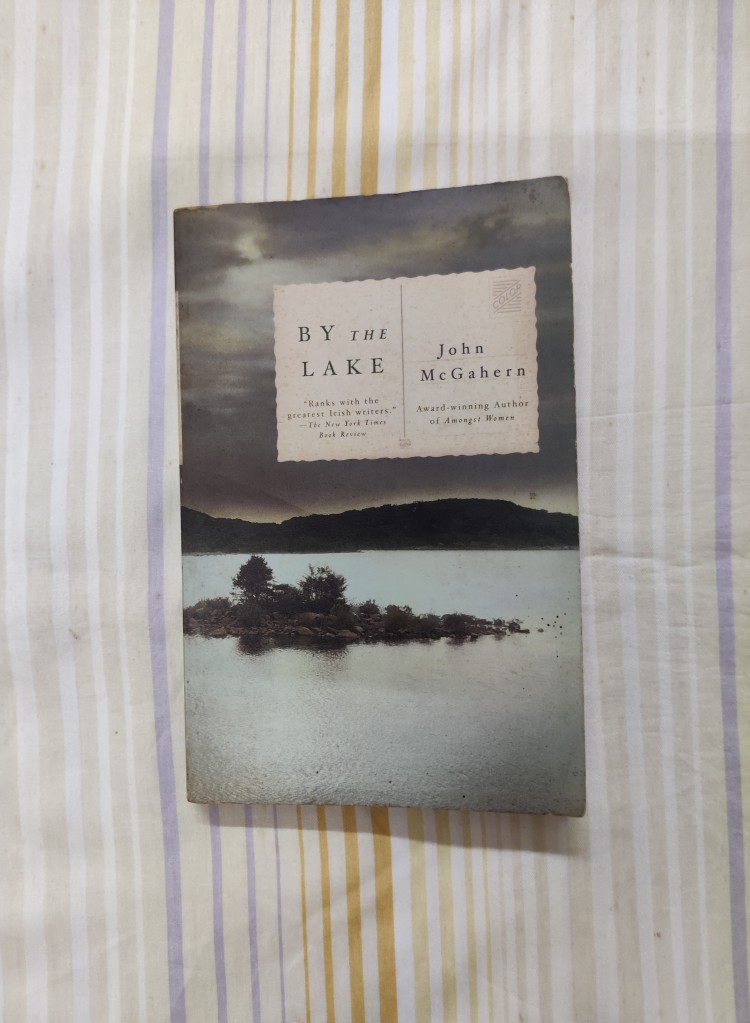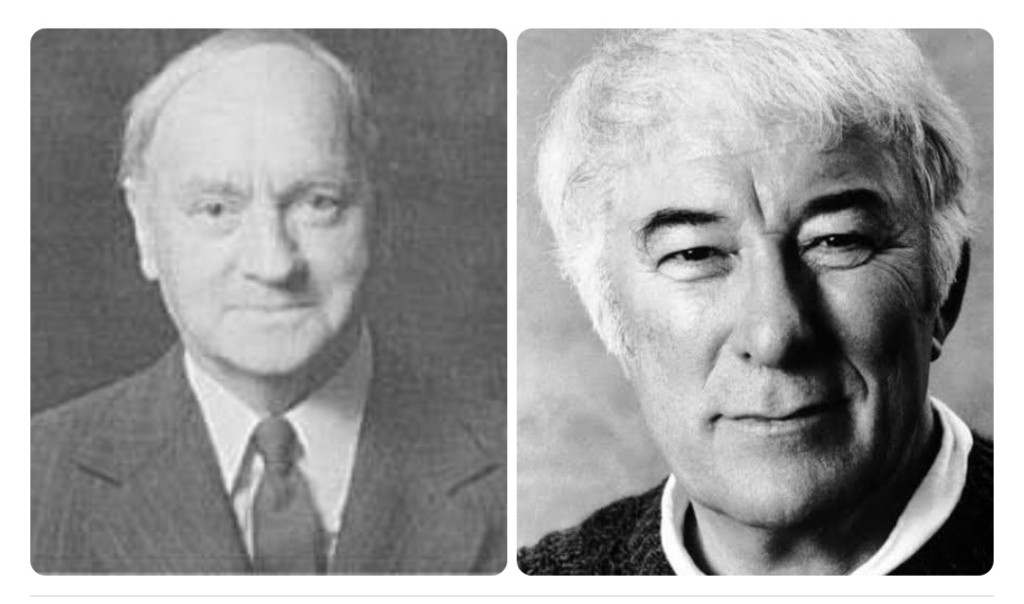I discovered John McGahern through an essay by one of my favourite essayists, Anne Fadiman. Later when I went to the bookshop to spend a few pleasant hours browsing books, I saw John McGahern’s ‘By the Lake‘ there and couldn’t resist it. All this happened years back. Since then the book has been languishing in my bookshelves. I finally got around to reading it.
There is a lake in an Irish village. Ruttledge and Kate live near the lake. They’ve moved here from London sometime back, because they wanted to enjoy the quiet rural atmosphere. Their best friends are Jamesie and Mary. What happens to these two couples and their families and friends and other people who live nearby and the animals they take care of, during the course of a year, is described in the rest of the book.

I loved ‘By the Lake’. Some of the characters in the story are rich, some of them are poor, some of them are talkative, some of them are quiet, some of them are religious, some of them are not. But nearly all the characters are charming and likeable, and some of them are eccentric. There is one character, who can be regarded as bad, but he is also charming in some ways. It was hard for me to pick one favourite character because I loved them all. The description of nature and village life is very beautiful and is an absolute pleasure to read. I highlighted so many favourite passages in the book. I’ve never read an Irish book like this. The Irish books I’ve read till now are typically indistinguishable from English books, or they talk a bit about Catholic religion, and that’s how we know that they are Irish. But this book is very different. It describes Irish village life and it sounds authentically Irish and is very different from anything I’ve read till now. I don’t know whether this is how an Irish village looks like now or whether this is how it looked like once upon a time, or whether this is John McGahern’s imagination on how he’d like an Irish village to be. Whichever of these is true, this book’s version of Ireland and the Irish village life is very beautiful and charming. I loved it and I’m glad I read it.
Sharing some of my favourite parts from the book.
Quote 1
Patrick Ryan : “How is England?”
Johnny : “England never changes much. They have a set way of doing everything there. It’s all more or less alphabetical in England.”
Patrick Ryan : “Not like this fucken place. You never know what your Irishman is going to do next. What’s more, the chances are he doesn’t know either.”
Johnny : “Everybody has their own way. There are times when maybe the English can be too methodical.”
Patrick Ryan : “No danger of that here. There’s no manners.”
Kate : “Some people here have beautiful manners.”
Patrick Ryan : “Maybe a few. But there’s no rules. They’re all making it up as they sail along.”
Quote 2
“Then the pony took him home. Unless there was wind or heavy rain he was always seen to be asleep in a corner of the trap as they passed between the two bars in Shruhaun. There was so little traffic on the roads, his nature so unassuming and easygoing, his little weakness so well known, that this quiet passage drew no more attention than affectionate smiles of recognition. No one even shouted a mischievous greeting. Generally, he woke coming in round the shore, the pony’s pace quickening in anticipation of being released from the trap and watered and given hay and oats. If the quick change of pace hadn’t woken him, he would be quickly shaken awake by the rutted road.”
Quote 3
“Bill Evans could no more look forward than he could look back. He existed in a small closed circle of the present. Remembrance of things past and dreams of things to come were instruments of torture.”
Quote 4
“As he listened to the two voices he was so attached to and thought back to the afternoon, the striking of the clocks, the easy, pleasant company, the walk round the shore, with a rush of feeling he felt that this must be happiness. As soon as the thought came to him, he fought it back, blaming the whiskey. The very idea was as dangerous as presumptive speech: happiness could not be sought or worried into being, or even fully grasped; it should be allowed its own slow pace so that it passes unnoticed, if it ever comes at all.”
Quote 5
“They could not live with him and they could not be seen – in their own eyes or in the eyes of others – to refuse him shelter or turn him away. The timid, gentle manners, based on a fragile interdependence, dealt in avoidances and obfuscations. Edges were softened, ways found round harsh realities. What was unspoken was often far more important than the words that were said. Confrontation was avoided whenever possible. These manners, open to exploitation by ruthless people, held all kinds of traps for the ignorant or unwary and could lead into entanglements that a more confident, forthright manner would have seen off at the very beginning. It was a language that hadn’t any simple way of saying no.”
Quote 6
“The days were quiet. They did not feel particularly quiet or happy but through them ran the sense, like an underground river, that there would come a time when these days would be looked back on as happiness, all that life could give of contentment and peace.”
Quote 7
“The table was laid, a single candle lit, the curtains not drawn. As they ate and drank and talked, the huge shapes of the trees around the house gradually entered the room in the flickering half-light, and the room went out, as if in a dream, to include the trees and the fields and the glowing deep light of the sky. In this soft light the room seemed to grow enormous and everything to fill with repose.”
Quote 8
Jamesie : “Do you think is there an afterlife?”
Ruttledge : “No. I don’t believe there is but I have no way of knowing.”
Jamesie : “You mean we’re like dog or cat or a cow or a when we are dead we are just dead?”
Ruttledge : “More or less. I don’t know from what source life comes, other than out of nature, or for what purpose. I suppose it’s not unreasonable to think that we go back into whatever meaning we came from. Why do you ask?”
Jamesie : “I’ve been thinking about it a lot since Johnny went.”
Ruttledge : “What do you think?”
Jamesie : “I think if there’s a hell and heaven that one or other or both of the places are going to be vastly overcrowded.”
Ruttledge : “I suspect hell and heaven and purgatory even eternity – all come from our experience of life and may have nothing to do with anything else once we cross to the other side.”
Jamesie : “At the same time you wouldn’t want to leave yourself too caught out in case you found there was something there when you did cross over.”
Have you read John McGahern’s book? What do you think about it?



